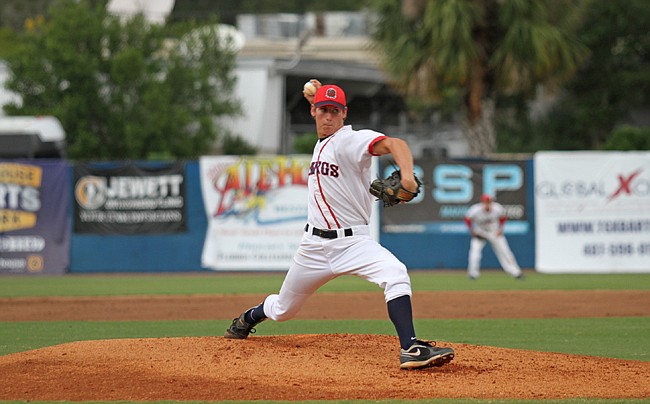- April 4, 2025
-
-
Loading

Loading

Talks of a minor league baseball team in Winter Park continued to take shape over the past 30 days as the City Commission and the city’s advisory boards looked at bringing America’s pastime to the city on a professional level.
Winter Park would be looking to build a 2,500- to 3,500-seat stadium and have a minor league team sign a lease of at least 20 years, City Manager Randy Knight said. Rollins College and a Florida Collegiate Summer League team would potentially use the stadium as well.
City staff has been in communication with the Brevard Manatees, the Single-A affiliate for the Milwaukee Brewers. Team owner and Winter Park resident Tom Winters hopes to bring the Manatees to the city, eyeing a stadium opening at the start of the spring 2015 season.
But the City Commission mutually agreed 2015 may be too soon at their work session on Monday, hoping to avoid rushing into a major agreement by sticking with 2016 instead.
“I’m worried about the tail wagging the dog,” City Commissioner Steve Leary said. “I want to make sure we’re doing what’s right for the city. If we want minor league baseball and we think baseball is important for the citizens of Winter Park and the region, I think it needs to go where we want it to go in the timeframe we want it to go in.”
Commissioners looked at what they believed to be the four strongest sites for a baseball stadium: Rollins’ Harper Shepherd Field, Martin Luther King Jr. Park, the incoming Ravaudage development, and the Votech property owned by Orange County Public Schools along U.S. Highway 17-92.
The Ravaudage property seemed most appealing to City Commissioner Carolyn Cooper despite it being the most expensive. A chance to build off the Miller’s Ale House and the surrounding future developments without agitating any nearby neighborhoods seemed like an obvious choice, Cooper said.
A more cost-effective approach would be Harper Shepard Field, Knight said, which wouldn’t have any land costs and would mean additional stadium funding from Rollins College. The location’s lack of parking remains the biggest disadvantage.
It would cost the city at least $20 million to build a new baseball stadium. The City Commission would only move ahead with the concept if it were funded through multiple partners, Knight said.
Commissioner Sarah Sprinkel scrambled to make it clear that the city won’t be using taxpayer dollars to fund a stadium.
“We need to have a clarification of exactly what we’re doing here tonight,” Sprinkel said. “We are not going to tax our citizens to do this.”
The 45-day baseball discussion period that began last month, made its way to two of the city’s advisory boards. Economic Development Advisory Board Chairman Marc Reicher saw baseball as a potential boost during the slower summer months for Park Avenue merchants. Customers could catch a game whenever it’s convenient during their shopping trips, he said.
But the discussion of baseball in Winter Park brought out other opportunities for the city beyond a professional sports team. The Parks and Recreation Advisory Board saw one former potential stadium site – an abandoned tree farm near Lee Road – as a perfect location for more recreational fields for Winter Park’s youth.
Knight said that Central Florida is the largest market in the state without a professional baseball team. According to U.S. Office of Management and Budget statistics, Metro Orlando is the second largest metropolitan area in the country without an MLB franchise, let alone a minor league team.
Another city will likely take the opportunity if Winter Park doesn’t, Mayor Ken Bradley said.
The City Commission will make a formal decision at its next meeting on Feb. 24 of whether or not to continue into a five-month period of pursuing minor league baseball.